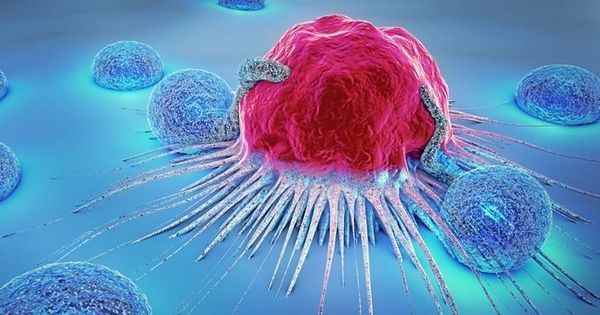Published ,
Reading 2 mins.
With this new treatment called CAR-T cells, the progression and recurrence of lymphoma seem to be reduced. It is currently used in 45 hospitals and cancer centers in France, including the Henri-Becquerel center in Rouen.
Attacking the lymphatic system, lymphoma is a cancer that affects 250,000 people each year, worldwide. The arrival of a new treatment for this cancerous disease has given rise to enormous hope.
“CAR-T cells” or “CAR-T” cells: what are they?
This new treatment leads to a genetic modification of the patient’s immune system, which makes it capable of becoming a “cancer killer”. It is a very innovative form of immunotherapy, which is based on the genetic modification in the laboratory of the immune system of the patient, who will receive a gene in his T lymphocytes.
These modified T lymphocytes, called “CAR-T” cells, then become capable of:
- Recognize cancer cells;
- Get active in their contact;
- Destroy them effectively.
Since these are the patient’s own cells, no rejection phenomenon is possible, they are recognized and accepted by his immune system.
It is therefore a personalized treatment, carried out exclusively for a given patient. On the other hand, it is necessary to evaluate the possibility for a patient to receive this treatment, because it is very heavy and difficult to bear.
Very precise instructions
This treatment concerns adult patients who have already received at least two prior treatments, in whom the disease has recurred or has not progressed favorably. It also concerns certain types of lymphoma and leukemia for the moment, but it could also be effective in myeloma and certain solid tumors. It is delivered in the form of a single infusion, is carried out in the hematology intensive care unit. This treatment can cause side effects, and be complicated by severe manifestations such as fever or neurological signs that can lead the patient to intensive care.
Consult an oncologist online
Very encouraging results
However, the results are more than encouraging, as it allows healing in a significant number of cases (30 to 40% for lymphomas) in patients resistant to all conventional treatments. It nevertheless requires the coordination of different health professionals: haematologists, coordinating nurses, immunologists, pharmacists, an experienced paramedical team, etc.
Finally, it should be noted, because this is not the case everywhere, that at the Rouen University Hospital, there is also a possibility of pediatric treatment.
